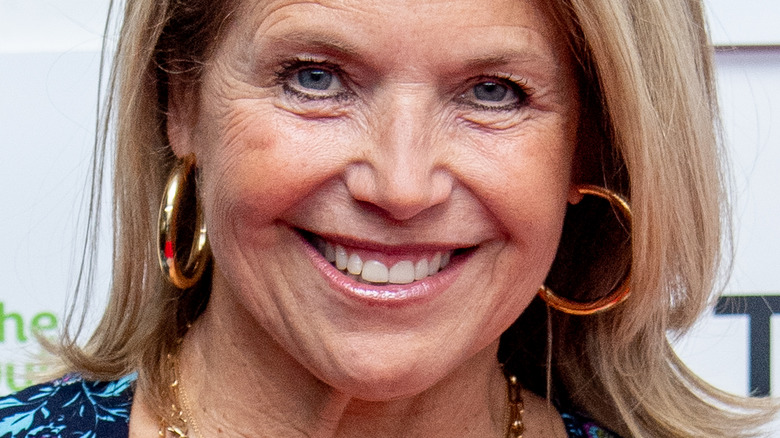The Truth About Katie Couric's Eating Disorder
Katie Couric has been in the headlines in recent weeks as excerpts from her bombshell memoir "Going There" are revealed. In the 500-page book the former "TODAY" news anchor divulges some details about interactions she's had with people she met throughout her career, like Prince Harry, Diane Sawyer, Matt Lauer, and others. She also revealed the way she treated other women on the morning show, admitting that she felt like she had to "protect her turf" as a woman in media. CBS banned her from promoting her tell-all book on their network, according to a Page Six source, after she criticized CBS for trying to move her from "CBS Evening News" to "CBS This Morning."
In the book, which hits shelves on October 26, the former "Katie" host talks about the relationship she had with her former nanny Nancy Poznek, who worked for her from 1991 to 1994 and took care of her daughter. She wrote that Poznek "managed to grow deep, twisted roots into our family and my psyche, leaving me to imagine I couldn't function without her," via the Daily Mail. Poznek fired back in an interview with the outlet, claiming that the former "CBS Evening News" host lived like a "teenage boy" and that she "was not a smart person."
The "KCM Media" founder didn't just divulge details about other people, but about the struggles she endured, as well. Here's what Katie Couric had to say about her personal health struggles.
Katie Couric says she 'aspired to be thin and lanky'
Katie Couric's new memoir continues to garner attention for the information she's revealed about other people, but the mother of two also opened up about her own struggle with bulimia, which she dealt with for about seven or eight years in the 1980s, per the New York Post. In the book, Couric discusses how her family took dieting quite seriously. "I think there was an aspect of perfectionism and high achieving that was very much a part of our family, and that contributed to my discontent about my body," she divulged to People.
Couric also revealed that societal expectations weighed heavily on her. "There was so much pressure on women, and dieting was so much a part of the culture," she admitted. "Like so many women of our generation, I aspired to be thin and lanky and all the things I'm not. She added that Karen Carpenter's death was a major wake-up call for her. "I really just started to understand how dangerous it was," Couric explained.
Couric says her relationship with food has improved, but it's a work in progress. "Food still plays a slightly outsized role in my consciousness, but not nearly as much as it did," she revealed.
If you are struggling with an eating disorder, or know someone who is, help is available. Visit the National Eating Disorders Association website or contact NEDA's Live Helpline at 1-800-931-2237. You can also receive 24/7 Crisis Support via text (send NEDA to 741-741).


